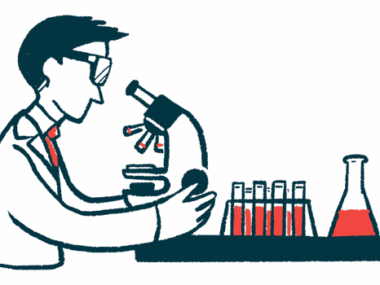Two Grants Will Advance Research for ‘Waking’ Healthy Genes in Prader-Willi Syndrome
Written by |

A research project aiming to uncover whether awakening “sleeping” genes could overcome the genetic errors underlying Prader-Willi syndrome (PWS) and lessen disease severity, has earned funding from the Prader-Willi Research Foundation of Australia and the U.S. Foundation for Prader-Willi Research.
“[W]e hope they might help people with Prader-Willi syndrome by reducing some of the serious symptoms and improving their quality of life,” Marnie Blewitt, PhD, said in a press release. Blewitt is associate professor at the Walter and Eliza Hall Institute and the grant’s recipient.
PWS is a genetic disease caused by alterations in a group of genes located on chromosome 15. The disease occurs only if the altered genes are inherited from the father, since the genes inherited from the mother, which are healthy, are not used.
“This is because it is only the copy from the father which is ‘awake’ and being used,” said Blewitt.
“People with Prader-Willi syndrome have another copy of chromosome 15 — with the healthy form of the genes — that they have inherited from their mother. The problem is that these ‘maternal’ genes are inactive, or ‘sleeping’, and can’t compensate for the father’s copy being absent or having an altered function,” Blewitt said.
Researchers want to investigate whether “awakening: the mother genes may lessen disease severity.
“If the maternal genes on chromosome 15 could be awakened, they could help to reduce the severity of some symptoms of Prader-Willi syndrome. We think this could improve the lives of people with Prader-Willi syndrome and their carers,” said Blewitt.
“Our new funding from Prader-Willi Research Foundation of Australia and the Foundation for Prader-Willi Research will help us to explore a potential approach to awakening these genes” she added.
Blewitt’s research team at the Walter and Eliza Hall Institute is studying how genes can transition from “sleeping” to an awake, active mode. Their research will focus on a protein known as SMCHD1 that is responsible for keeping genes in the “sleeping” mode.
“We discovered that SMCHD1’s targets include some of the maternal genes that are involved in Prader-Willi syndrome. We have already discovered that if the function of SMCHD1 is blocked, these genes will wake up and become functional” said Blewitt.
With this funding, the team will now test if removing SMCHD1 from PWS cells can affect the genes that are silenced.
“If removing SMCHD1 does wake up the maternal genes in the cells of people with Prader-Willi syndrome, we would want to explore whether medicines that can block SMCHD1 could have the same effect,” Blewitt said.
For more information about the project, readers may watch this video.





